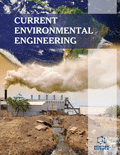Abstract
Background: Air pollution affects both the health of living being and the materialistic resources. Amid the development of anthropogenic methods and machines, atmosphere has turned as a sink for foul gases and disorderly energy. Air pollutant discharges have deteriorated the natural composition of air in atmosphere at spatial manner.
Method: The resulting losses from air pollutants can be minimized either by control at source (through air pollution control devices) or by diverting the receptor from pollution prone area. The second option requires an exact estimation of air pollutant’s concentration, which can be done by use of air pollution forecast models. There are many simulation models for forecasting the air pollutant concentration at any place. However, the results of these models are questioned many times because of inappropriate forecasting. In this paper author proposes a comprehensive multi-criteria process based upon statistical formulae for the evaluation of the performance of Air Pollution Forecast Models.
Results: The performance of Air Pollution Models can be judged by error analysis, comparison of forecasted and observational data, use of statistical performance measurements and criteria. All these techniques are discussed for their suitability and guiding the modeler to select the optimal criteria for best model performance.
Conclusion: The selection and use of specific evaluation criteria and their ability to interpret the results varies with the study area, prevailing meteorological conditions, formulation of model structure and behaviour of observed data and simulation results. A suitably selected performance criteria help in designing the best deliverable air pollution forecast model.
Keywords: Concentration, forecasting, efficiency, error, modelling, dispersion, statistical, turbulence.
Graphical Abstract
 37
37 2
2

